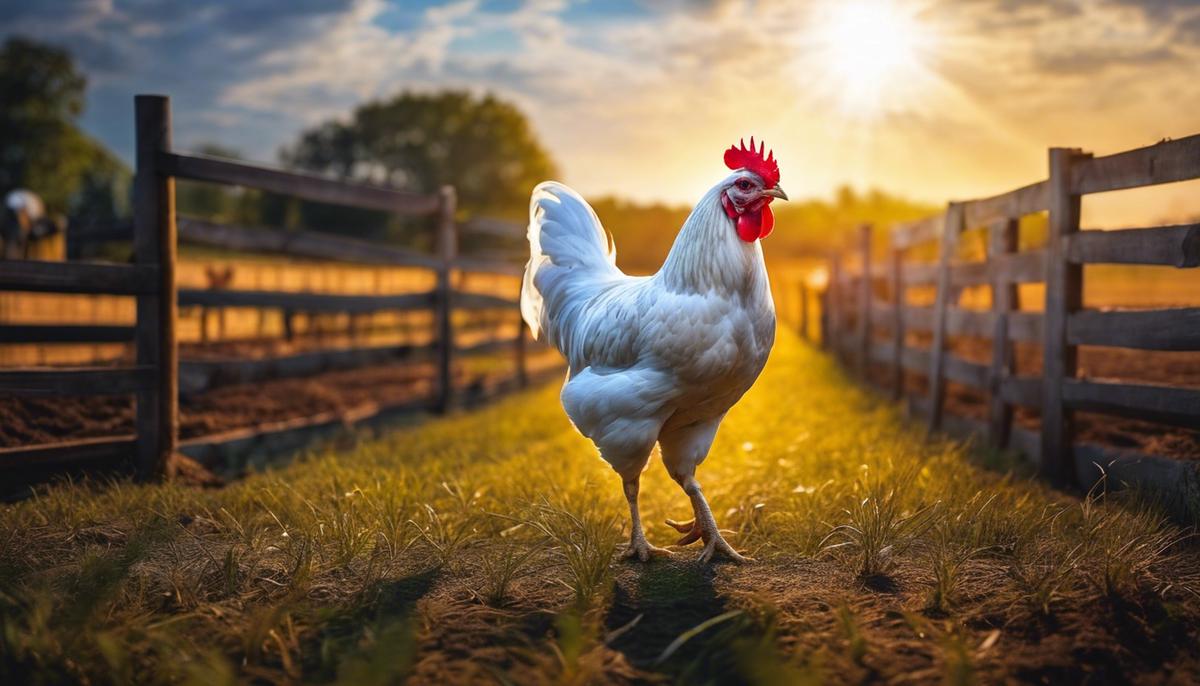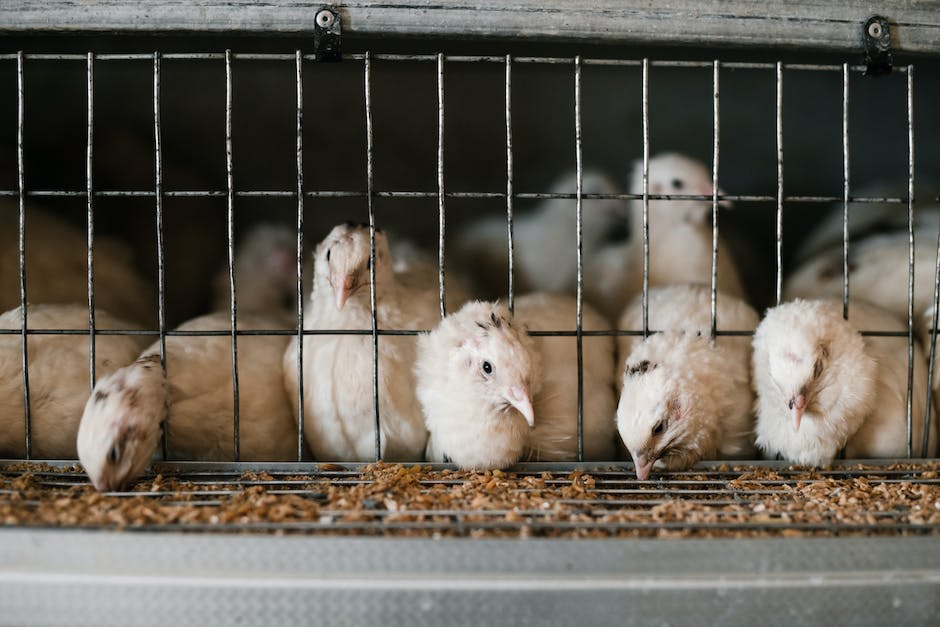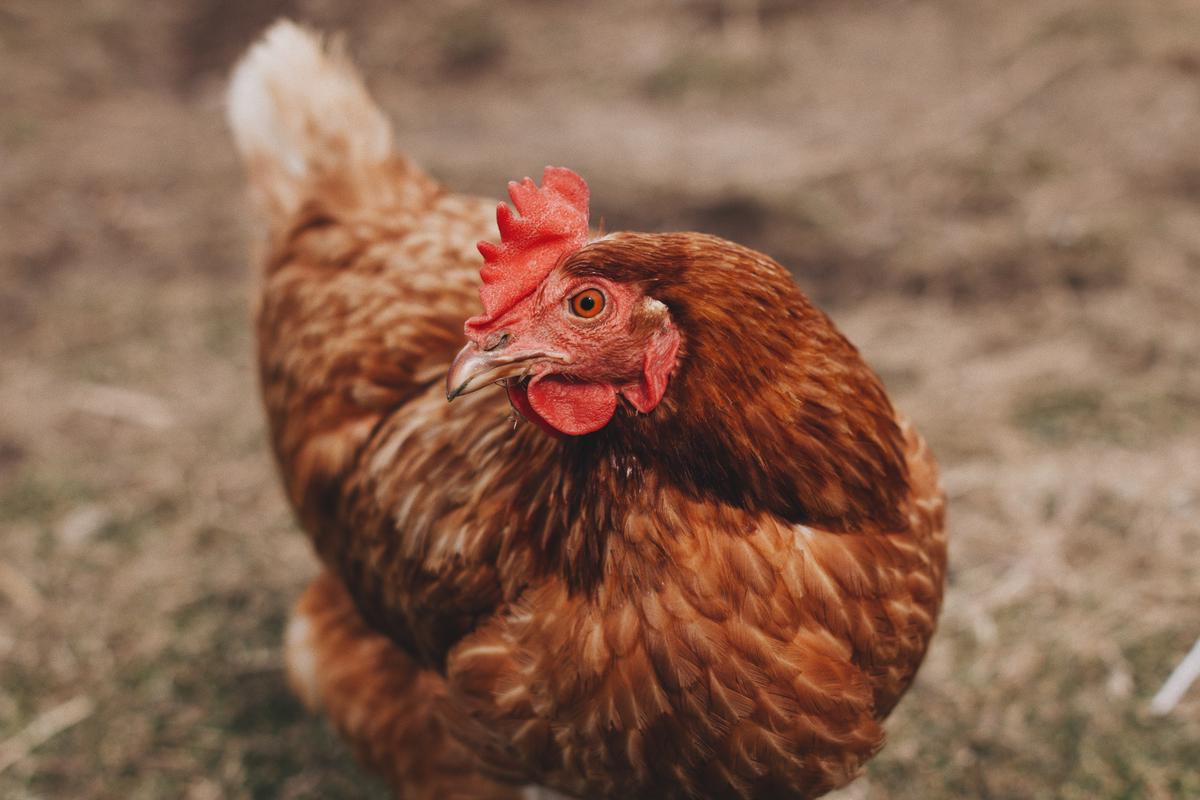

Agridisk
Egypt - Alexandria
.jpeg)
Poultry farming for beginners | How to start
Description: Embarking on a journey into poultry farming can seem daunting for beginners, but armed with the right knowledge and tools, anyone can successfully start their own poultry farm. Venturing into this area of agriculture necessitates an intimate comprehension of both the theoretical and practical aspects of poultry farming. This goes from understanding the essential behavior of birds, studying variants like chickens, ducks, turkeys and their specific needs, to charting the pathways of setting up a viable poultry farm. Factors including location, pen construction, ventilation systems and feeders become integral to this process. Equally critical is gaining insights into biosecurity methods to shield the flock from diseases. Any successful venture starts with a robust business plan. Poultry farming is no exception! A sound business plan should include a realistic budget, target market identification, a marketing strategy, location procurement and analysis, and a contingency plan. The savviest entrepreneurs have a comprehensive understanding of their competition and fill niche markets when applicable. Product specification is essential. Are you looking to produce eggs or meat? If it’s eggs, White Leghorns breed is usually encouraged because of their superior egg-laying capacity. Conversely, if geared towards meat, the choice often leans towards broiler chickens. Hence an appropriate breed selection, depending on the industry's needs, is imperative. Next up, housing logistics. The chick's shelters must have ample space, proper lighting, ventilation, and temperature control. Remember, the healthier the chickens, the better the output! Poultry diseases can wipe out entire stocks seemingly overnight. Implementing vaccinations to prevent diseases, providing a balanced diet and clean water, and maintaining impeccable hygiene throughout the facility, are paramount factors. Remember, a chicken's growth is intensely correlated with their nutrition. Thus, planning a proper diet with necessary vitamins and minerals translates to healthier chickens and subsequently, enterprise profitability. Poultry farms produce a significant amount of waste. Develop a waste management plan that enables recycling or reusing waste products. The end product could potentially be a lucrative secondary income stream, such as organic fertilizers. Embrace innovation! Deploying latest technologies like Artificial Intelligence (AI), IoT (Internet of Things), and Computer Vision can revolutionize your poultry farming experience, by enhancing productivity and reducing mortality rates. In line with the rising trend and demand for sustainability and kindness to animals, poultry farms should adhere to ethical and sustainable farming practices. Happy chickens mean successful business! Last but by no means least, complying with all state and central regulatory laws related to poultry farming is indispensable. While the poultry industry presents immense growth potential, navigating it successfully requires an expert blend of business savvy and industry knowledge. Remember, innovate to stay ahead, strategize for sustainability, and always put the product quality and welfare of your poultry first. Building a successful and sustainable poultry farm from scratch requires more than just a love for animals and agricultural know-how. It is essential to creatively incorporate sophisticated business acumen, and a deep understanding of the industry's multidimensional aspects. Below are fundamental strategies that will ensure competitiveness in today's discerning market: Just like in any other industry, envisioning and creating a unique brand is pivotal to stand out in poultry farming. Work on developing a compelling brand story that resonates with the target market, and understand how to position your products effectively. Delineate unique selling propositions, such as organic, hormone-free, or free-range offerings. It's crucial to pin this down right from the beginning. The key to a successful poultry venture lies in efficient management execution and meticulous planning of the poultry cycle. Farm operations should rigorously schedule phases of brooding, growth, production, and marketing. Timeliness in each of these phases significantly influences overall productivity and profitability. In this dynamic marketplace, one needs to anticipate and be prepared for inevitable changes. Any business, including poultry farming, will experience a range of external issues like fluctuating feed prices, regulatory changes, or disease outbreaks. Therefore, cultivating an adaptable business model that can pivot and even capitalize on unexpected obstacles is critical. Consistently staying abreast with the latest trends, research, and technology in the poultry industry is a given. Networking with other professionals, attending industry conferences, and participating in online forums and webinars is imperative. Continual learning fuels innovation and underpins staying competitive amid an evolving industry landscape. Consider linking the poultry farm with other complementary agricultural activities, creating a productive integration of resources. For instance, poultry waste can serve as organic fertilizer for crop farming, hence optimizing resources. Simultaneously, diversifying into other poultry-based products or extending into other farm birds can provide additional streams of income and risk hedging. Investing in a skilled and dedicated workforce, and continuous staff training can't be overemphasized. It can lead to better productivity, bird welfare, and operational efficiency. Additionally, implementing a fair and ethical workforce policy attracts and retains talent, and reinforces your business values to the consumers. Maintain transparent and proactive communication with all concerned stakeholders – customers, suppliers, lenders, local community, regulatory bodies, etc. This not only ensures smooth operations but also builds trust, credibility, and a positive business image. Indeed, setting up a poultry farm is no small feat – it takes vision, tenacity, and sheer hard work. However, by approaching it with a business-mindset and continually evolving, you can pave the way for a sustainable and profitable poultry venture. Now, simply let your entrepreneurial spirit take the lead, draw upon these insights, and venture into the exciting world of poultry farming. In the pursuit of good health and productivity in poultry farming, the essence of marketing, cycle optimization, adaptability, professional development, integrated farming, skilled labor, and stakeholder engagement cannot be downplayed. Marketing and branding form an imperative area of focus in the poultry farming business. It’s more than selling; it is formulating strategic plans to boost the farm's image. It involves positioning the farm’s reputation through transparent practices, unique branding, and value delivery to ensure competitive advantage. Optimizing the production cycle in poultry farming significantly enhances productivity. It involves maximizing the productivity of each poultry life stage through a well-laid plan that guarantees each cycle is seamlessly completed without disruption. Steps such as breeding, hatching, fattening, and marketing must be optimally coordinated to avert any downtime. Staying adaptable in the poultry industry holds significant potential for success. The industry is always evolving and laden with unpredictabilities; hence, the need to adjust and acclimate to varying market conditions, adjust to technological changes, and revise operational methods continually. Savvy poultry farmers are never complacent about staying informed. Constant knowledge upgradation in the poultry industry prevents obsolescence and helps in identifying opportunities and managing threats. This might include keeping up-to-date with innovative farming methods, disease control measures, and new scientific research. Poultry farming also benefits from diversification and integration. Introducing different types of poultry or integrating crops and animals aids in cost reduction and enhances revenue diversification. Integration also allows for the effective use of resources such as utilizing poultry waste as fertilizer, promoting sustainability. Skilled labor and an adequately trained workforce are vital contributors to a productive poultry farm. The productivity of any poultry farm hinges on the ability of the staff to handle the birds humanely and adeptly manage their health and general care. Regular training and workshops can keep the workforce informed about modern farming techniques while ensuring optimal bird-care. Finally, strategic stakeholder engagement in poultry farming illuminates the route to success. Active engagement with suppliers, customers, employees, and community fosters good relationships. Being proactive in addressing stakeholders' needs and concerns can foster loyalty, enhance your farm's reputation, and pave the way for long-term success. Remember, achieving good health and productivity in a poultry farm isn’t a one-off endeavor. It's a continuous commitment to good practices, adaptation, and a resolve to excel in all facets of poultry farming. So, stay informed, be adaptable, integrate, diversify, market passionately, and keep engaging. Beyond understanding the foundation of poultry farming, it's paramount to dive into the details surrounding feed, health and poultry management. As such, having knowledge about the nutritional needs of poultry, identifying the optimal feed types and realizing how to tackle common health issues all fall under this umbrella. This information is instrumental in preventing and managing potential health problems. Mastering best practices in poultry management, inclusive of egg handling, bird handling and vaccinations, is also critical to ensuring a thriving poultry farm. The success of your venture lies in the amalgamation of this learning, careful implementation and persistent management. As you continue your initiation into poultry farming, remember, every expert was once a beginner. Good luck on your poultry farming journey!Poultry farming for beginners | How to start
Understanding Poultry Farming Basics
Poultry farming, a pillar of agriculture worldwide, has grown at a rapid pace in the last 50 years, globaled by an increasing CEO demand for protein-rich foods. With chicken being one of the most consumable meats globally, understanding the fundamentals of poultry farming is essential. Whether it’s a small-scale setup or a large commercial operation, the following foundational elements are key to success in this industry.

Setting up your Poultry Farm
Cutting-Edge Blueprint for Establishing a Successful Poultry Farm

Feed, Health and Management of Poultry
